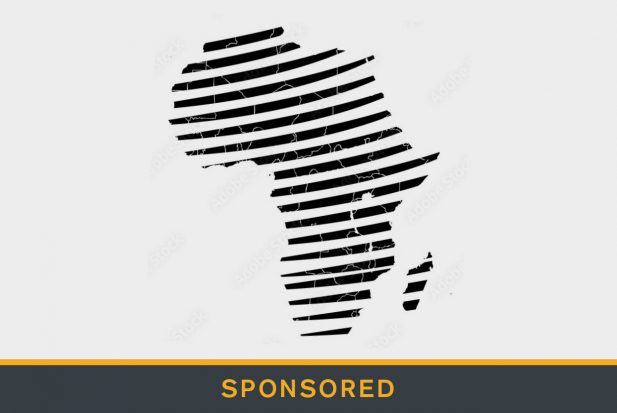
George Wilson, Head of Institutional Trade Finance, and Derryn Faure, Institutional Trade Finance, at Investec Bank Limited, outline their argument for why African trade finance – sustainable by definition – is the ideal channel for international ESG funding.
The climate crisis is the hottest topic being discussed in the world today. The Cop26 climate summit in Glasgow in November 2021 has made some progress towards reducing carbon emissions, including aligning the finance sector with net zero by 2050, accelerating the phase-down of coal and ending international financing for fossil fuels. The question, however, is what about the rest of the United Nation’s Sustainable Development Goals (SDGs) “to achieve a better and more sustainable future for all”? Climate change is addressed in only four of the 17 goals.
As a result of the various recent governmental commitments towards carbon neutrality and environmental limitations on global warming, businesses today face increasing scrutiny of their environmental, social and governance (ESG) strategies. Social and environmental responsibility and sound corporate governance is consequently fast becoming one of the most important criteria for funds, multilateral agencies and developmental finance institutions (DFIs).
African sustainable trade finance – the ‘S’ and the ‘G’
Notwithstanding that ESG encapsulates three pillars, is there prioritisation on the ‘E’ part over the ‘S’ and ‘G’? Is it all about climate change and the commitment to renewable energy to the prejudice of (in particular) the social and developmental aspects under the SDGs?
The SDGs recognise that ending poverty must go hand-in-hand with goals to improve health and education, reduce inequality and spur economic growth, while at the same time addressing climate change and preserving our oceans and forests. So where does this leave us when it comes to the prioritisation of ESG, in particular for sustainable trade finance in Africa, when the continent is currently run on oil and gas and coal-fired plants? To simply immediately cut international funding relating to oil and gas trade transactions because of their environmental impact without taking into account any other SDGs contradicts the commitment to the UN’s 2030 Agenda for Sustainable Development. Is African trade finance not, by definition, sustainable?
The Paris Agreement acknowledges “the imperatives of a just transition of the workforce and the creation of decent work and quality jobs in accordance with nationally defined development priorities” and highlights the importance of workers in responding to climate change. A “just transition” acknowledges that livelihoods need to be secured when economies are shifting to sustainable production in order to combat climate change and protect biodiversity. It is one thing to advocate for a just transition and to pledge assistance to developing nations’ governments toward renewable energy and just transition, but what about the practical implementation of deploying this funding to the real economy? We would argue African trade finance is the most effective channel for this funding to deliver the intended goals.
Unlike debt, African trade finance is mediated entirely by banks, which must audit every detail of the parties, purpose and transmission of millions of their trade transactions. Does this not warrant a degree of trust in African private, commercial banks, as far as the ‘G’ is concerned?
Enhanced governance is an automatic consequence of all the regulation, controls, auditing and compliance of the very African banks’ licencing requirements that originate the trade assets in the first place. Instead of trying to enforce debt, green bond or developed market trade key performance indicators (KPIs) and implausible digital feats of proof and evidence, the international community should understand that African trade finance is different, and trust the regulated bank financiers, or things will never practically improve.
African banks should be required to provide some sample information as additional proof that their compliance oversight is, indeed, active and effective. However, a precondition of international funding cannot be complete and perfect information on vast trade portfolios from the start.
The danger of environmental exclusion
There is an emerging risk that the ‘E’, the environmental component, completely precludes and overrides the social development goals – that even the developmental agencies prioritise climate change above all other sustainability goals, and the international community salves its conscience through crowding out renewable projects to the prejudice of all other sustainable trade finance. It appears that the focus of ESG funding is to large environmental projects with the right sector KPI certifications as opposed to sustainable African trade finance.
The harsh reality is that much of the continent depends on extractive industries for survival and Africa currently runs on diesel and coal – albeit contributing only 2% of emissions globally. Shut these off and fragile economies won’t just falter and fail but people will suffer, starve
and die. There needs to be a concerted effort towards ‘trade not aid’ if Africans are going to be pulled out of poverty, starvation and suffering. However, if international funding is restricted further now due to the ‘E’ impact of ESG requirements on African trade, the situation will simply get worse.
The approach laid out in the ICC’s positioning paper on “standards for sustainable trade and sustainable trade finance” as a roadmap and vision for industry, policymakers and traders worldwide is almost certainly right for developed market trade finance and certainly any claiming sustainable credentials, but in our view it is not appropriate for the state of the African market. Either all African trade should be ESG compliant by definition and should automatically qualify for international funding, or perhaps it should automatically qualify where it doesn’t actively cause environmental damage or human suffering. Is it not intuitively obvious that trade finance portfolios of African banks should automatically qualify as fulfilling the SDGs’ sustainability criteria? Trade is estimated to contribute up to a third of GDP growth in developing African economies, SMEs employ as much as 85% of the population, and trade is the ultimate supply mechanism for food security, health, industrialisation and infrastructure into African economies.
Again, this is where understanding and trusting of African banks’ governance is key: many African banks have been at the vanguard of self-imposed ESG policies and enforce them with rigorous compliance. Obtaining the right warranties in the formation of the portfolios of facilities is a workable interim solution.
The African trade finance gap
It is important to reference the African trade finance gap, which has worsened throughout the depredations of the Covid-19-induced lockdowns, supply chain interruptions and economic distress visited at the SME level of fragile African economies.
International investors and development agencies need to understand the root causes of the trade finance gap being the inability of African (largely SME) merchants to obtain credit from their (usually lower tier) local banks to fund their trade and working capital requirements. This is largely because extraneous Basel regulatory capital and US dollar liquidity costs make such transactions deeply unprofitable for these banks. African countries don’t export enough US dollar-denominated goods. They need trade refinancing facilities from international DFIs and banks to sustain their trade finance FX requirements – there really isn’t any other sufficient source.
Furthermore, international banks and DFIs can only refinance a subset of large, long and lumpy trade assets at pricing that makes them profitable only if they can ‘prove’ it is re-financing trade. This means rendering up all the details (and evidence) of the underlying trade transaction, for example importer, exporter, goods, origin, etc, to verify the legitimacy of every trade dollar, including their green and social responsibility credentials.
This fundamentally does not work for African trade as the data burden is just too much for the true nature of the assets and the institutions that originate them because real MSME trade finance consists of millions of very small, very short tenor, randomly drawn, maturing and revolving assets. Trade processing and any associated collateral or security in Africa is largely analogue, manual, physical and paper based.
What motivation would African banks have in investing their finite US dollar liquidity and capital in lending to ‘risky’ SMEs unprofitably, with ROEs way below their cost of equity, when they could simply buy government bonds, completely risk free and earn a 15% return? These are commercial banks with shareholders and the only responsible policy is to avoid trade finance – hence the trade finance gap. Limiting funding further due to the ‘E’ pillar of international ESG policies could be disastrous for African trade.
Conclusion
There is a danger that well-meaning international SDG certification and ESG requirements may actually worsen the trade finance gap.
Panglossian pundits of the African Continental Free Trade Area claim that it will magically close the gap. Although it is a huge step forward for intra-African trade, it misapprehends the causes of the lack of access to trade finance. Although its tariff reductions will ultimately improve the economics of African traders, who have successfully obtained trade facilities from their banks, it won’t be of any help at all to the SMEs who can’t get the trade facilities in the first place.
Not only must there be a realisation that the envisioned debt certification tools of the ‘E’ fixated KPIs are completely inappropriate for African trade finance, any trade funding which aids in closing the African trade finance gap, should qualify as sustainable. That the oversight governance framework to ensure that millions of transactions aren’t actively damaging to the environment or humanity is already embedded in regulation of the very African banks which directly finance them. They could simply be contracted into their compliance regimes. If we can do it for AML and sanctions, surely we can do it to save the planet?











